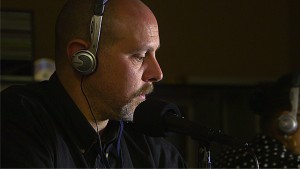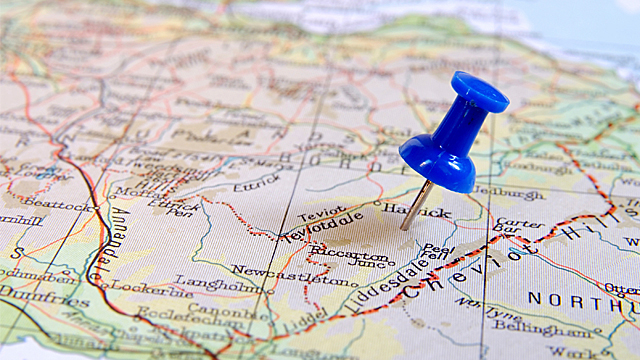Two weeks ago we looked at why we need mercy and last week we reflected on Don Francisco’s beautiful song, “Adam, Where Are You?”
Last week we also saw what the Church teaches about Original Sin: Once we were in a state of Original Grace. Original Sin is the state of deprivation of that state, of original holiness and justice. (CCC#417) Since then, God has been doing everything to bring us back into that state of Original Grace. The Catholic Church gives us the tools to continually strive to receive God’s Grace.
It is apparent that the author of Genesis did not see a world that was united with God. We live in a world that is fragmented, separate from God, and our quest to “know, love and serve God” is in fact our desire to get back to the Garden of Eden, to get back to that state of unity with God to which the Sacraments point. Furthermore, the physicality of the Sacraments, the required matter, indicates that despite our current human state, there are glimpses of Eden in our physicality. We are created in the image of God and His image is still in us, despite Adam and Eve’s disobedience. We are not completely separated from God.
But we have free will. That has been the case from the beginning. God creates out of love. He wishes the best for his creatures. He wishes that his creatures love him freely – not robotically. Therefore, his creatures, in His image, are free. This is why the Tree of the Knowledge of Good and Evil had to be within reach. Humans have to be able to choose. Another reason why we need Mercy.
And every time we choose away from God, He calls to us “ayeka; where are you?” to give us the opportunity to turn back to him and say “sorry.” This was perhaps Adam and Eve’s greatest mistake. Twice God gave Adam the opportunity to repent. First Adam deflects the question and then passes the blame. I wonder how different the story would have been, had Adam responded to God’s, “ayeka?” with a “Here I am. I’m sorry. We ate from the Tree you forbade. It won’t happen again.”
And isn’t this the story of our lives? We live in a world where people have lost all sense of shame. We live in a world where we’ve lost the ability and desire to ask for and offer forgiveness and mercy. We are a people that continuously goes to great extents to re-define good and evil so as to suit our own petty, selfish needs, because facing God, answering his “ayeka?” is too painful and too much work.
Still, humans are continually choosing between good and evil, between life and death. The reality is that we humans are lost without God. And God is continually pursuing us, loving us, searching for us, hoping that we will finally come home, as Don Francisco says at the end of his song, “before it’s time to finally close the door.” (Another good image to keep in mind as we cross through Holy Doors this year.)
As we journey through this Christmas Season and we begin a new year, it is most appropriate that we ask the questions, “Where am I? What have I done? Where am I going? How was last year? How did I live today? How was I in bondage today? How was I blameless before God?” These are all “ayeka?” But in asking, the danger, as what happened to Adam and Eve, is to hide rather than answer, to flee rather than face, to evade rather than accept responsibility for what we have done and for what we have left undone.
I remember a few years ago I was speaking to a representative of the Gideons International In Canada who showed me their newest pamphlet, titled, “Where is the map?” This is a perfect image for all of us who strive to “get back in to Eden.” But, if we don’t know where we are going, how do we know which map to use? Catholic singer/songwriter Sarah Hart in her song: “Any Road” says, “Any road will do if you have no destination, but really where are you, if any road will do?” (Any Road by Sarah Hart. From Obvious. Oregon Catholic Press ©2001) We have a destination and we have a map. This year, Pope Francis is inviting us to consider using the map of Mercy.
It is my prayer and hope that all of us are able to choose the right destination, and using the right map, we can choose the right road, so we know at all times where we are. Let us be aware of our need for Mercy and our need to offer mercy to others. When God asks us, “ayeka, where are you?” may we be able to say yes to his offer of Mercy and we are able to answer, not like Adam and Eve, but like Abraham, like Samuel and like Mary, “Here I am, Lord. Amen. Let your will be done.”

Every week, Deacon Pedro takes a particular topic apart, not so much to explore or explain the subject to its fullness, but rather to provide insights that will deepen our understanding of the subject. And don’t worry, at the end of the day he always puts the pieces back together. There are no limits to deaconstructing: Write to him and ask any questions about the faith or Church teaching:
[email protected]
 Every week, Deacon Pedro takes a particular topic apart, not so much to explore or explain the subject to its fullness, but rather to provide insights that will deepen our understanding of the subject. And don’t worry, at the end of the day he always puts the pieces back together. There are no limits to deaconstructing: Write to him and ask any questions about the faith or Church teaching:[email protected]
Every week, Deacon Pedro takes a particular topic apart, not so much to explore or explain the subject to its fullness, but rather to provide insights that will deepen our understanding of the subject. And don’t worry, at the end of the day he always puts the pieces back together. There are no limits to deaconstructing: Write to him and ask any questions about the faith or Church teaching:[email protected]